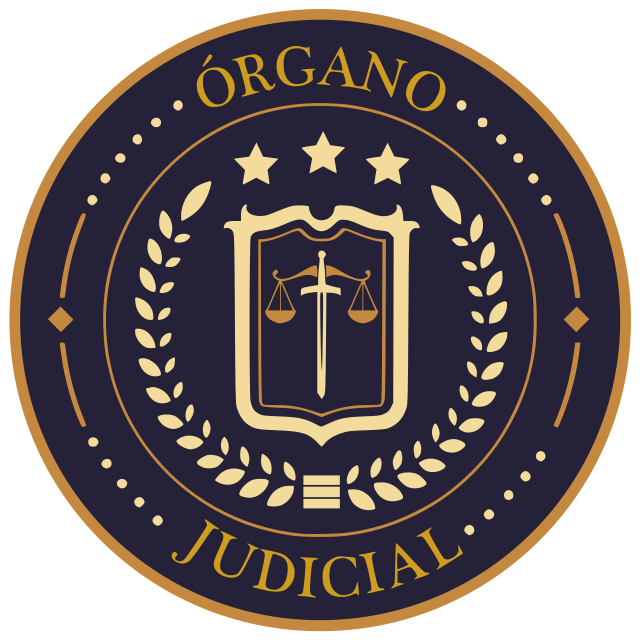Loading AI tools
From Wikipedia, the free encyclopedia
The Supreme Court of Justice of El Salvador (Spanish: Corte Suprema de Justicia de El Salvador) is the highest court of El Salvador. The court sits in San Salvador. The current president is Judge Óscar Alberto López Jerez.

The Supreme Court is part of the judicial branch of El Salvador. It is composed of 15 judges and an equal number of substitutes. The magistrates are elected by the Legislative Assembly of El Salvador for nine-year terms, which are reviewed every three years. A two-thirds vote of legislators is necessary. Under the 1983 Constitution of El Salvador, the legislature also designates one judge as the President of the Supreme Court. This person is also then the head of the judicial branch and the Constitutional Court.
Article 176 of the Constitution establishes the criteria for a Supreme Court judgeship:
The Supreme Court is organized into four courts:
In 2009, the Legislative Assembly elected Supreme Court judges for the period from July 16, 2009 through July 15, 2018. However, judges sitting on the Constitutional bench will serve for the period from July 16, 2012 through July 15, 2021, with the exception of Judge Bonilla Flores whose term ends in 2015.
| Title | Judge | Chamber | Year of election |
|---|---|---|---|
| President | Óscar Alberto López Jerez¹ | Constitutional | 2021 |
| Judge | Elsy Dueñas Lovo | Constitutional | 2021 |
| Judge | José Ángel Pérez Chacón | Constitutional | 2021 |
| Judge | Luis Javier Suárez Magaña | Constitutional | 2021 |
| Judge | Héctor Nahúm Martínez | Constitutional | 2021 |
| Judge | Alex David Marroquín² | Civil | 2021 |
| Judge | Dafne Yanira Sánchez de Muñoz | Civil | 2015 |
| Judge | Leonardo Ramírez Murcia | Civil | 2015 |
| Judge | Sandra Luz Chicas de Fuentes² | Criminal | 2021 |
| Judge | Roberto Carlos Calderón Escobar | Criminal | 2018 |
| Judge | Alejandro Antonio Quinteros Espinoza | Criminal | 2021 |
| Judge | José Ernesto Clímaco Valiente² | Administrative | 2021 |
| Judge | Sergio Luis Rivera Márquez | Administrative | 2015 |
| Judge | Paula Patricia Velásquez | Administrative | 2015 |
| Judge | Henry Alexander Mejía | Administrative | 2021 |
Notes:
¹ President of the Supreme Court and the Constitutional Court; ² President of the respective chambers.
On April 21, 1825, the National Congress chose a President of the Central American Republic (Manuel José Arce) and also the first Supreme Court. Choosing the president was a simple matter, but the Supreme Court less so. The law mandated that the members of the court be elected by popular vote, and by the Legislative Assembly if no one obtained a majority. Finally, Congress chose the following people for the first Supreme Court:
This court began its work on April 25, 1825.[1]
Following the end of the Salvadoran Civil War, the Commission on the Truth for El Salvador and the Ad Hoc Commission identified weaknesses in the judiciary and recommended solutions, the most dramatic being the replacement of all the judges on the Supreme Court. This recommendation was fulfilled in 1994 when an entirely new court was elected.
One problem the Supreme Court needs to solve is the speed with which the courts resolve criminal cases. In 2000, for example, some 48% of prisoners did not have a firm sentence.[2]
On the other hand, the Supreme Court will decide against the executive branch, demonstrating some independence. There is constant battle between the judicial and executive branch over the application of the anti-gang laws.[3]
But at the national level, the Supreme Court is criticized for being too dependent on the legislative branch, who is responsible for naming the judges. At the time of election of judges, the different parties negotiate their votes, and the election is usually a form of political compromise. Judges are also thought to be of varied quality throughout the country, and in some places, cases take a very long time and many years are spent resolving controversial cases. The Constitutional Court has also been criticized for taking too long to issue decisions, which some say results in justice delayed too long.
Seamless Wikipedia browsing. On steroids.
Every time you click a link to Wikipedia, Wiktionary or Wikiquote in your browser's search results, it will show the modern Wikiwand interface.
Wikiwand extension is a five stars, simple, with minimum permission required to keep your browsing private, safe and transparent.